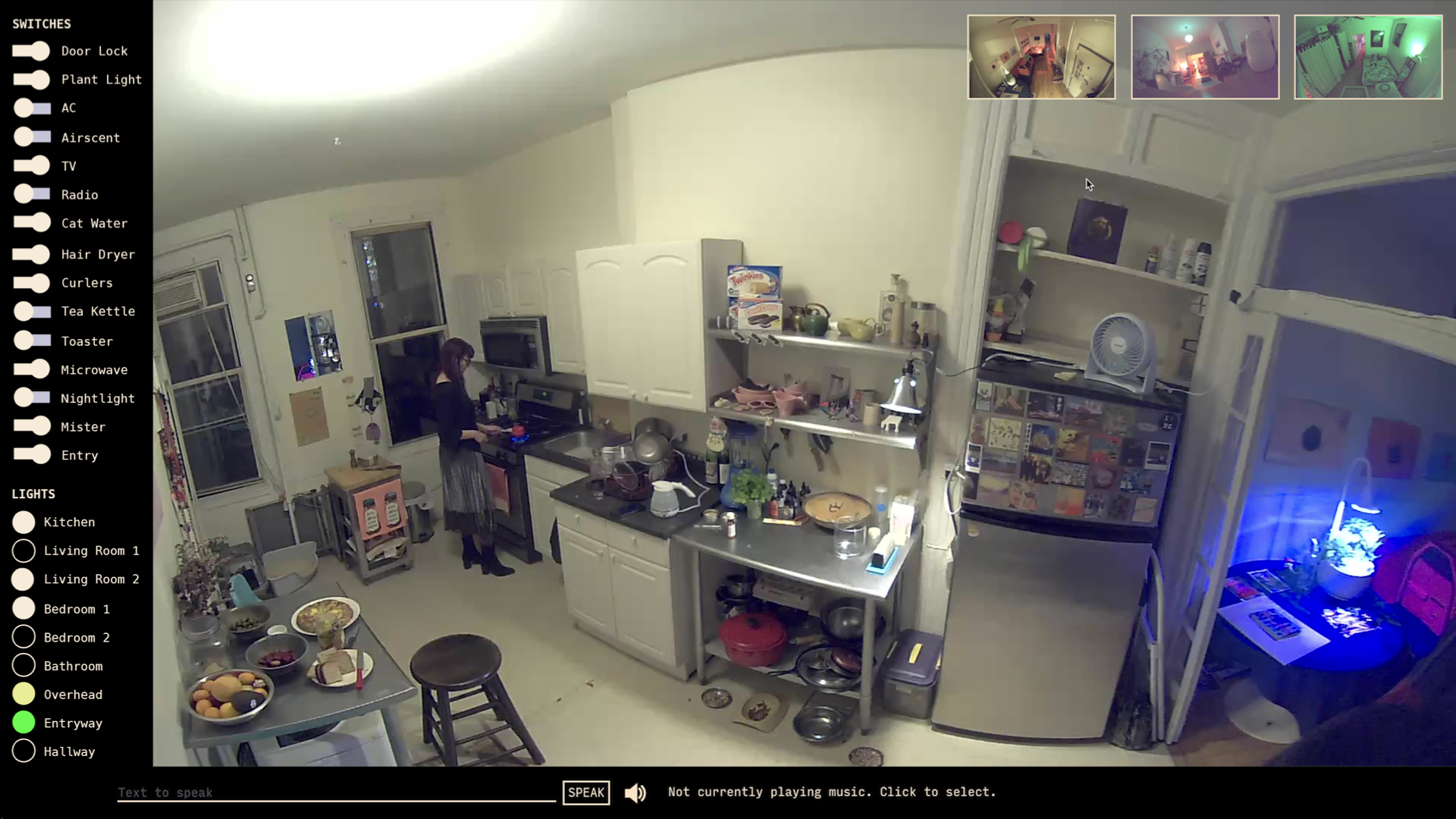WHAT IS THE STATE OF SURVEILLANCE?

SOMEONE: AMANDA. Lauren Lee McCarthy, 2019.
Date & Time: Tuesday, September 26, 2023 7:00 PM PDT
Location (In-person): ASU California Center 1111 S Broadway, Los Angeles, CA 90015
Location (Online): Register here for streaming option
Presented in partnership with ACLU of Southern California and The Progress Network
Moderated by Ramesh Srinivasan, Tech and Society Scholar at UCLA and Director, UC Digital Cultures Lab
Early this year, an uncrewed Chinese-operated high-altitude balloon floated across U.S. airspace, stoking anxiety and fascination among Americans, who assumed it was spying on them, and ultimately provoking President Biden to order the Pentagon to shoot it down. Just as alarming as foreign espionage, though, is the fear of information-gathering turned inward. American anxieties around the “surveillance state” have only grown since the Watergate scandal; with the post-9/11 passage of the USA PATRIOT Act; and with revelations that federal agencies sift through ordinary Americans’ phone and email communications, financial information, and Internet usage. Add in the rise of artificial intelligence, and our addictions to smartphones and sharing personal data, and pressing questions arise: Is Big Brother watching, and do we like it? What is the role of surveillance in our democracy, and to what ends do government and business use it? Does being watched keep us safe, or are we being snookered into becoming our own unwitting informants? What standards for digital privacy do we even want?
Zócalo, ACLU of Southern California, and The Progress Network welcome ArtCenter College of Design art and tech scholar Mashinka Firunts Hakopian, Brennan Center government surveillance expert Faiza Patel, and ACLU SoCal attorney Mohammad Tajsar—experts working in and thinking deeply about surveillance and what it means for our 21st-century public and private lives—for a timely discussion moderated by UCLA’s Ramesh Srinavasan.
Zócalo invites their in-person audience to continue the conversation with the speakers and each other at a post-event reception with complimentary small bites and drinks.
Zócalo Public Square values audience safety. During events at ASU California Center, as bag searches are not permitted, only clear bags (maximum size 12” x 6” x 12”) and small clutches (maximum size 8 ½” x 5 ½”) are allowed in the venue. Zócalo may be able to provide a limited number of clear bags to help accommodate guests. Questions? Ask Zócalo at events@zocalopublicsquare.org.
The venue, ASU California Center is inclusive and accessible for all. A platform wheelchair lift is available at their main entrance via Broadway (ground level). Upon checking in for the event, please inform Zócalo staff if you need assistance, or contact events@zocalopublicsquare.org for additional information.
